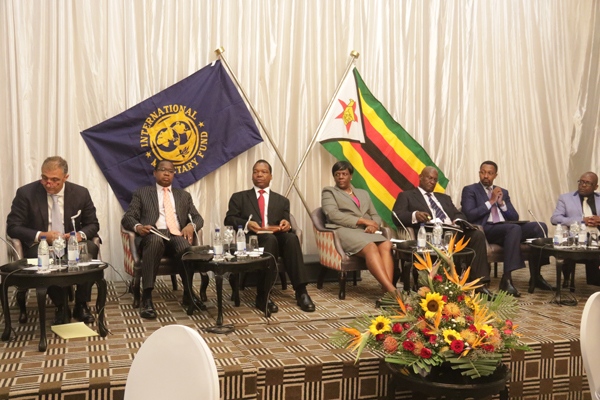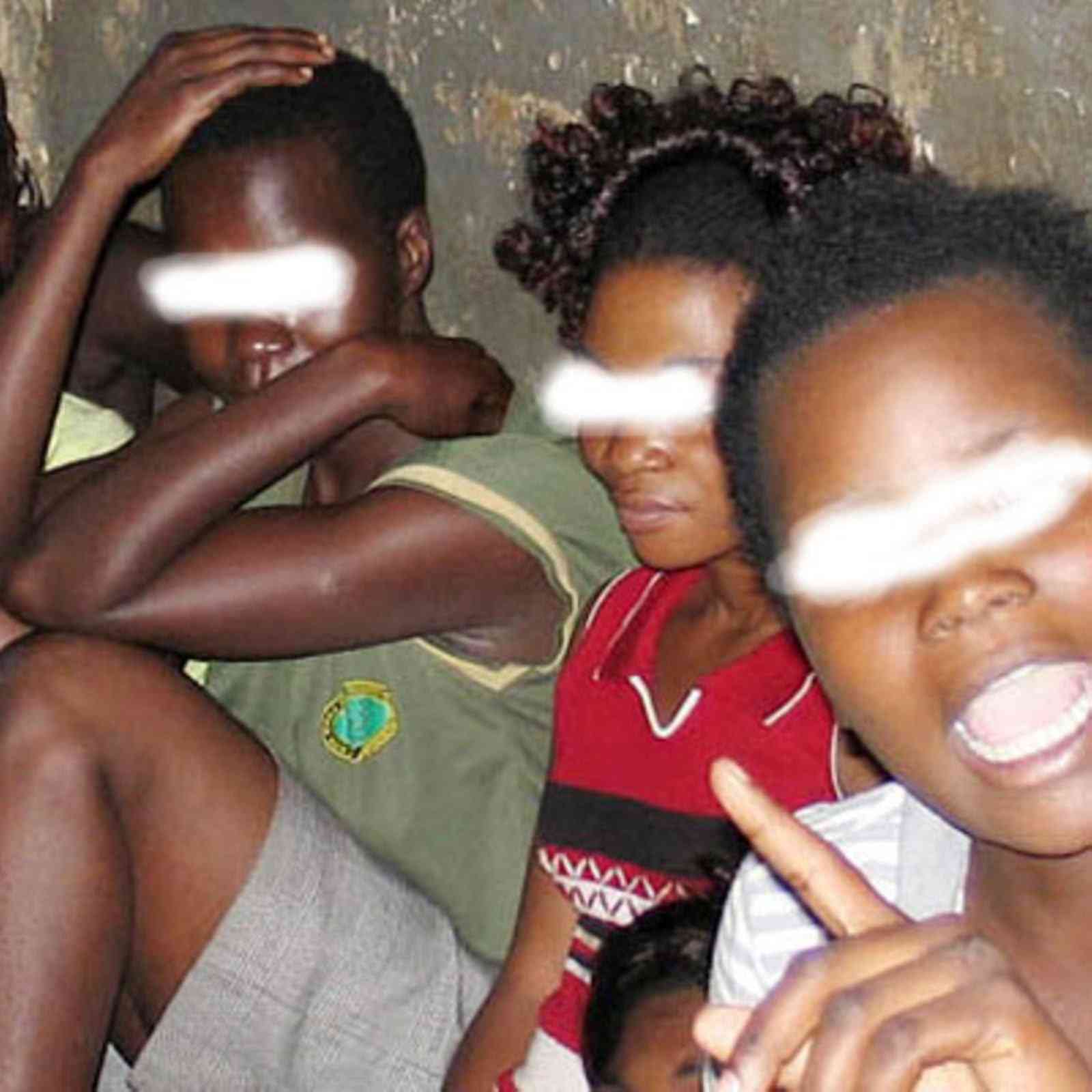
On October 20, Zimbabwe utilised part of its Special Drawing Rights (SDRs) to settle the US$108 million it owed to the International Monetary Fund (IMF)’s Poverty Reduction and Growth Trust Fund (PRGT), which funds were held and kept at the IMF.
The timing of this payment and the payment itself are clearly absurd and irrational that all reasonable Zimbabweans have smelt a rat and cried foul.
In the eyes of many, the Zanu PF regime and the IMF are clearly brewing yet another shocker to prop up the former. That process is being pursued as a last-ditch attempt to save the all but dead Lima Plan, which in the eyes of many, was nothing but an excuse to finance an autocratic, desperate, shameless and rogue regime.
In 2011, the Zimbabwe government tried to pay off its debt to the fund using its SDRs, but the same IMF refused for correct legal, economic and strategic reasons.
It is, therefore, shocking and frightening, six years later when Zimbabwe is now in a more fragile position that the fund has changed its position.
The first objection by the fund in 2011 was that the clearance of the IMF arrears when Zimbabwe has so many creditors, amounted to an unfair and unlawful preferential treatment of one creditor against others.
It is trite law that an insolvent debtor in the position of Zimbabwe cannot make a special payment to one creditor to the prejudice of the other creditors.
Zimbabwe owes at least US$9 billion of which US$3,4 billion is owed to bilateral creditors, mainly the Paris Club and US$2,5 billion to multilateral institutions, namely the World Bank.
- Chamisa under fire over US$120K donation
- Mavhunga puts DeMbare into Chibuku quarterfinals
- Pension funds bet on Cabora Bassa oilfields
- Councils defy govt fire tender directive
Keep Reading
The World Bank is owed at least US$2 billion while the African Development Bank (AfDB) is owed US$550 million.
Under these circumstances, both domestic and international law would not allow preferential payment to one creditor.
International financial institutions (IFIs) and the multilateral institutions themselves have a rule — the pari passu rule — which requires equal treatment of all creditors.
In paying the fund in preference to others, government has clearly breached the pari passu rule.
More significantly, by accepting the money without the World Bank and the AfDB being paid, the IMF is complicit and, in fact, facilitating the breach of well-established financial rules.
The question remains: why is the IMF doing this?
Secondly, Zimbabwe’s SDRs held at the IMF constitute the only balance of payment reserves that Zimbabwe has. The fund was, therefore, correct in 2011 to say that Zimbabwe should not deplete its reserves which were less than two weeks of import cover.
Until the recent withdrawal, Zimbabwe import cover consisted of SDRs left by the Government of National Unity (GNU) in the sum of US$360 million.
Following the payment, Zimbabwe is therefore left with disastrous reserves consisting of less than one week import cover.
The IMF should be seriously concerned about this position.
One of the key functions of the fund is to secure financial stability and global monetary co-operation. In this regard, the management of international trade payments, commonly known as balance of payments, has to be safeguarded. The SDRs of the IMF were created as some form of reserve currency for balance of payments support.
In consciously diminishing Zimbabwe’s SDRs, the fund has collapsed Zimbabwe’s already fragile balance of payments position.
Thirdly, now that the Lima strategy is dead, clearing arrears of the IMF without a new holistic plan is pointless, meaningless and a disaster.
With a debt of over US$9 billion, the sum of US$108 million is a drop in the ocean.
In our view, now that the Lima Plan is dead, a new debt strategy is required, but one that is not foolish or reckless.
From the word go, we argued that the Lima strategy was foolish and reckless to the extent that it was based on Zimbabwe borrowing heavily from one creditor to settle another creditor under circumstances of impossible and severe budgetary constraints and toxic political context.
As we have argued before, Lima was bound to fail as it is not possible to have reforms without reformers. Zanu PF is dishonest, predatory and rogue. It has basically killed the Lima Plan through its failure to implement even the smallest modicum of reforms.
As recent as September 12 2016, cabinet reversed Finance minister Patrick Chinamasa’s attempt to save a paltry US$318 million of a budget deficit that is now 30% of the GDP.
The policy announcement by the government on May 4 2016 proved beyond reasonable doubt that Zanu PF is dishonest. More than anything else, it was decisive in killing the Lima Plan in absolute terms.
In our view, Zanu PF on its own cannot run this economy. A new debt strategy will require a new government. The new debt strategy must ensure that Zimbabwe carries out fundamental structural reforms and at the same time it must be based on debt cancellation or debt relief.
In short, the Heavily-Indebted Poor Countries (HIPC) initiative must be implemented under a new credible government, that is the National Transitional Authority (NTA), as the only credible debt solution for Zimbabwe.
It is, therefore, shocking that the IMF has accepted Zimbabwe’s repayment outside the context of any plan. Our fear is that in Zanu PF and in certain quarters of the IMF, Lima is unfortunately still alive.
Now that the IMF’s arrears have been cleared, there are those who will stupidly and dishonestly push for Zimbabwe to access the fund’s draw downs immediately.
We hope the IMF executive board will not succumb to such unmitigated madness.
Zimbabwe is in a deep economic crisis arrested by deflation, stagnation and low productivity. Zimbabwe’s current challenges do not require opportunistic shortcuts, more so with less than 18 months to an election.
We, therefore, hope and pray that the IFIs shall not play football with the people of Zimbabwe by facilitating the funding of an incorrigible regime that is beyond reform.
The time has come for IFIs to know that they cannot continue working against the interest of the average Zimbabwean by continuing to support a fascist kleptocratic regime without respect to the rule of law and human rights.
The continued belief by the IMF that Zanu PF is normal and reasonable must now be vacated. It is not. Rogue states will always be rogue states. And in Zanu PF, the world has one of the worst.
As we have argued before, you cannot put lipstick on a pig. Enough is enough.
#TogetherAnotherZimbabweIsPossible
People’s Democratic Party communications department.











